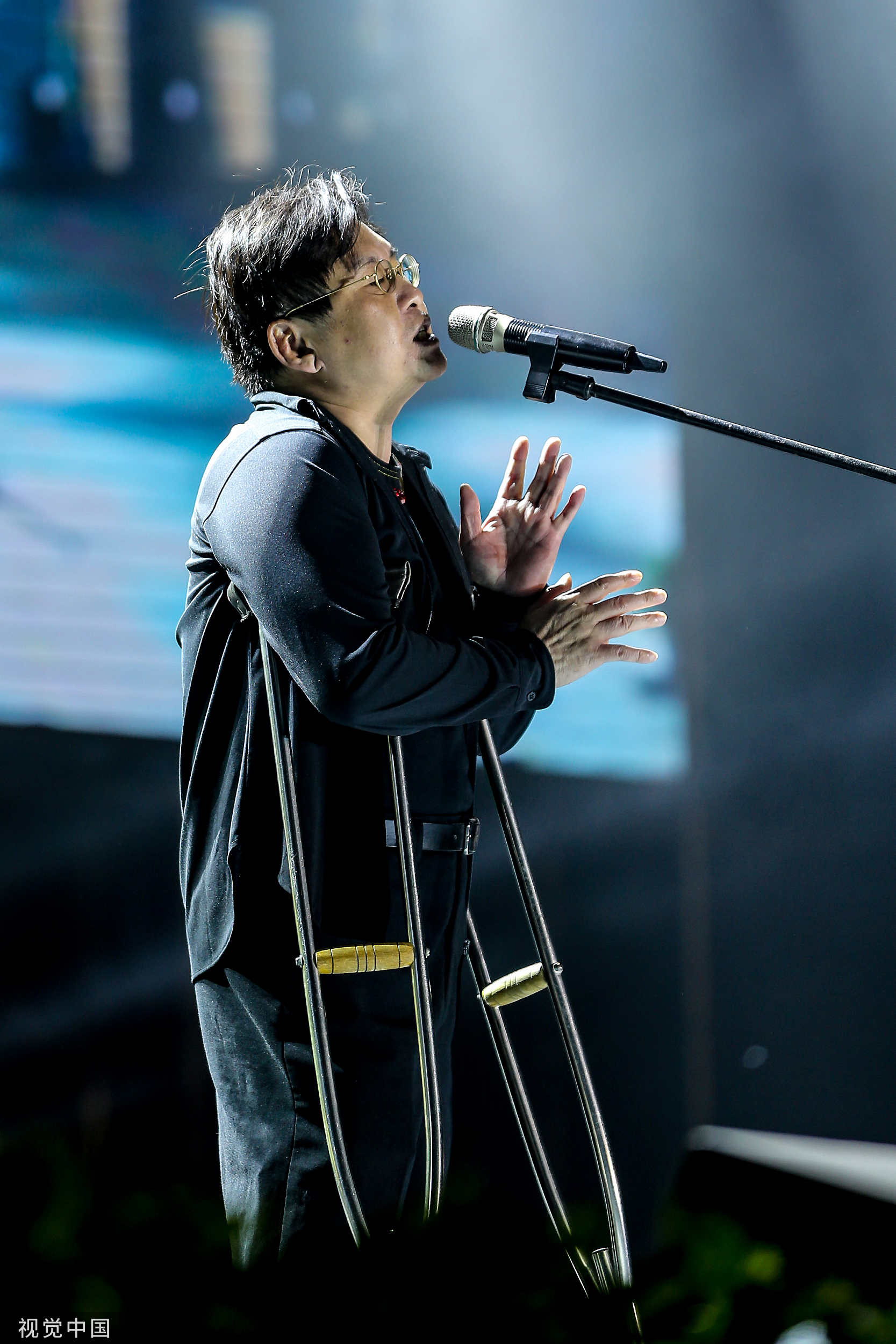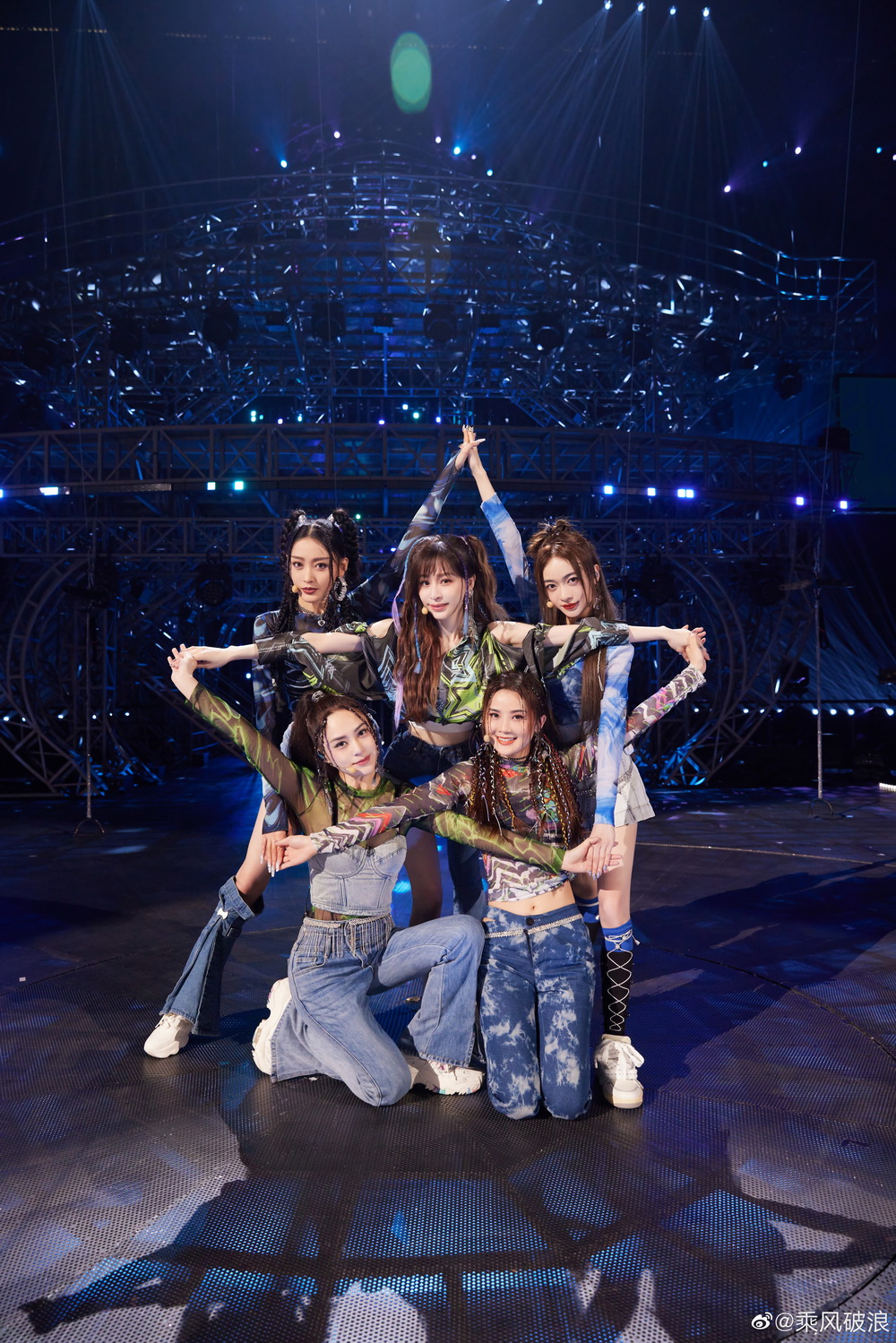
First of all, it should be noted that it is not that you can do whatever you want by buying the performance copyright of a song. Article 10, item 4 of China's Copyright Law clearly stipulates that the right to protect the integrity of a work is the right to protect the work from being distorted and tampered with. The right to protect the integrity of a work belongs to the personal right of copyright and has no time limit. After the death of the author, it is protected by his heirs or recipients.
In layman's terms, the complete right of Zheng Zhihua's "The Lighting of the Stars" belongs to his personality right and will always belong to him or his heirs. Even if you buy the copyright of the lyrics and music, and the copyright of the performance, you can't change it arbitrarily. Changes require my consent.
If some people still naively think: "Since the program team has bought the copyright, they can change it as they want", then they can shut down.
Although a thousand readers have a thousand Hamlets in their hearts, and although each copyright owner has a different attitude towards the adaptation of his work, if you mind someone else violating your right to the integrity of your work and go to court, you can get the law in China protected.
When Jin Yong was in his 80s, he was angry that others turned his works into pornographic novels and commercialized them. His old friend Ni Kuang advised him not to be angry. Forget it, Jin Daxia still sued. The case of Zha Liangyong v. Jiangnan that year became the "first case of fan works", and Jin Yong won the case, setting a trial standard for the gray area of the industry. Zheng Zhihua can also consider prosecuting to do a legal education for the industry and the public.
There was also a loud voice in the wave of discussion, which avoided legal issues, but was darker. They compared Zheng Zhihua's "passage" with Wang Xinling's "popularity", showing a stench of admiring the strong and bullying the weak. This kind of voice thinks that Wang Xinling is the one who is red now, so he naturally stands at a high place. All the unfavorable voices to her are for the purpose of smearing the heat or smearing her. The popular Wang Xinling sang and danced "The Lights of the Stars" with four other actresses in a performance in the third season of "Riding the Wind and Waves". No matter how it was adapted, it would put gold on the face of Zheng Zhihua, who was not popular. The latter was still dissatisfied, and even made a protest sound. It was really cheap and good-natured. To say it was ugly would be shameless.
Zheng Zhihua should have confidence in the vitality of "The Lights of the Stars". In his self-positioning, he shows that he attaches great importance to creation and ideological power: "I should be an artist; at the same time, I am a well-informed thinker." Before making music, he studied architecture, worked in engineering, and did advertisements. Zheng Zhihua, who has also opened an IT company, probably disdains to use the method of rubbing the heat to brush his sense of existence. Zheng Zhihua, who has not appeared in public for a long time and has written some good songs, should speak out now, just to protect the results of his intellectual activities.
But as a listener who has benefited from the old version and has lingered in his ears for many years, he still has something to say.
Some people feel that the adapted lyrics are bright and inspirational, which is in line with the atmosphere of today's era. They may not know that there is the most extreme sunlight in the desert, and objects without shadows are very scary.
Like Luo Dayou's "Lugang Town", Zheng Zhihua's "The Lighting of the Stars" was written in the 1980s and 1990s when the global industrial chain shifted to Taiwan and a large number of rural people poured into cities. Away from home, lost, assembly lines and starlight, personal experiences change rapidly with the flow of population and youth. The feet are like standing on quicksand, the waves and white clouds move with great force, everything changes, and the feelings of the soul and the security of the material are also turbulent. This collective feeling condenses into several songs. Duolingo people regard them as the crystallization of the vicissitudes and life course, and have their own precious meaning.
Challenging the memory of times is hard. Even if he has never left his hometown, who hasn't looked around in a daze without looking up at the starlight? "The Lights of the Stars" is not only a song by a wanderer, it is also a light band in the splendid 1990s. It uses the stories of the times to soothe people's most basic emotions: confusion and hope.
The last two lines of the song are "The stars light up my future / Warm the child's heart with a little light". People are warm-hearted, and they will not give up easily because of the dirty sky and the stars and the moon. The lyrics have a complete logic. First, they leave home and work hard, and the stars are dimmed. Then the heavy rain extinguishes the neon lights, and a vague star appears to guide the way forward for the lost.
"Sunny Day" and "Always Seen" reveal a narrow understanding of music. When will dance songs only be matched with bright and cheerful lyrics that don't allow other emotions to exist? Why can't people dance in sadness, and can only kneel when they are sad?
Indistinctly, I could smell a hint of flattery. People who live in good times have no right to be lost and hesitant.
The unpleasant part of the adaptation of "Riding the Wind and Waves", "The Lights of the Stars", in addition to the badly changed words and unreasonable logic, also shows a lack of respect for the original author. The delay in responding reinforces the impression. There is a possibility that everything comes from clever planning. Incubating a topic that has caused widespread discussion is a great success for a variety show. If so, then it has succeeded, and it can indeed allow public opinion to ferment for a while before making the smartest response.
In layman's terms, the complete right of Zheng Zhihua's "The Lighting of the Stars" belongs to his personality right and will always belong to him or his heirs. Even if you buy the copyright of the lyrics and music, and the copyright of the performance, you can't change it arbitrarily. Changes require my consent.
If some people still naively think: "Since the program team has bought the copyright, they can change it as they want", then they can shut down.
Although a thousand readers have a thousand Hamlets in their hearts, and although each copyright owner has a different attitude towards the adaptation of his work, if you mind someone else violating your right to the integrity of your work and go to court, you can get the law in China protected.
When Jin Yong was in his 80s, he was angry that others turned his works into pornographic novels and commercialized them. His old friend Ni Kuang advised him not to be angry. Forget it, Jin Daxia still sued. The case of Zha Liangyong v. Jiangnan that year became the "first case of fan works", and Jin Yong won the case, setting a trial standard for the gray area of the industry. Zheng Zhihua can also consider prosecuting to do a legal education for the industry and the public.
There was also a loud voice in the wave of discussion, which avoided legal issues, but was darker. They compared Zheng Zhihua's "passage" with Wang Xinling's "popularity", showing a stench of admiring the strong and bullying the weak. This kind of voice thinks that Wang Xinling is the one who is red now, so he naturally stands at a high place. All the unfavorable voices to her are for the purpose of smearing the heat or smearing her. The popular Wang Xinling sang and danced "The Lights of the Stars" with four other actresses in a performance in the third season of "Riding the Wind and Waves". No matter how it was adapted, it would put gold on the face of Zheng Zhihua, who was not popular. The latter was still dissatisfied, and even made a protest sound. It was really cheap and good-natured. To say it was ugly would be shameless.

2016, Zheng Zhihua's Visual China Data Map
But sorry, there is no winner or loser in the cultural world. Creation is not a zero-sum game, nor a one-dimensional competition based on the degree of "popularity". The life of a work of art and an artistic personality is sometimes very short, like a mayfly dying. Sometimes extremely long, there are still many people today who read poetry from thousands of years ago and think it is beautiful. What is not appreciated by people in the world may be highly respected by future generations. If you cook oil in a fire for a while, the wild goose will pass without a trace. Although the length varies, generally speaking, the life of the work is always longer than that of the creator.Zheng Zhihua should have confidence in the vitality of "The Lights of the Stars". In his self-positioning, he shows that he attaches great importance to creation and ideological power: "I should be an artist; at the same time, I am a well-informed thinker." Before making music, he studied architecture, worked in engineering, and did advertisements. Zheng Zhihua, who has also opened an IT company, probably disdains to use the method of rubbing the heat to brush his sense of existence. Zheng Zhihua, who has not appeared in public for a long time and has written some good songs, should speak out now, just to protect the results of his intellectual activities.
But as a listener who has benefited from the old version and has lingered in his ears for many years, he still has something to say.
Some people feel that the adapted lyrics are bright and inspirational, which is in line with the atmosphere of today's era. They may not know that there is the most extreme sunlight in the desert, and objects without shadows are very scary.
Like Luo Dayou's "Lugang Town", Zheng Zhihua's "The Lighting of the Stars" was written in the 1980s and 1990s when the global industrial chain shifted to Taiwan and a large number of rural people poured into cities. Away from home, lost, assembly lines and starlight, personal experiences change rapidly with the flow of population and youth. The feet are like standing on quicksand, the waves and white clouds move with great force, everything changes, and the feelings of the soul and the security of the material are also turbulent. This collective feeling condenses into several songs. Duolingo people regard them as the crystallization of the vicissitudes and life course, and have their own precious meaning.
Challenging the memory of times is hard. Even if he has never left his hometown, who hasn't looked around in a daze without looking up at the starlight? "The Lights of the Stars" is not only a song by a wanderer, it is also a light band in the splendid 1990s. It uses the stories of the times to soothe people's most basic emotions: confusion and hope.
The last two lines of the song are "The stars light up my future / Warm the child's heart with a little light". People are warm-hearted, and they will not give up easily because of the dirty sky and the stars and the moon. The lyrics have a complete logic. First, they leave home and work hard, and the stars are dimmed. Then the heavy rain extinguishes the neon lights, and a vague star appears to guide the way forward for the lost.

Five actresses who sang and danced "The Stars and Lights" in "Riding the Wind and Waves"
The changed lyrics straighten the tortuous life, teleport from the dream of the past to the bright present, and go straight to the hopeful future. It seems to imply that the ups and downs of life are all pretending to be fake. With the right magic, misfortune can be kept away."Sunny Day" and "Always Seen" reveal a narrow understanding of music. When will dance songs only be matched with bright and cheerful lyrics that don't allow other emotions to exist? Why can't people dance in sadness, and can only kneel when they are sad?
Indistinctly, I could smell a hint of flattery. People who live in good times have no right to be lost and hesitant.
The unpleasant part of the adaptation of "Riding the Wind and Waves", "The Lights of the Stars", in addition to the badly changed words and unreasonable logic, also shows a lack of respect for the original author. The delay in responding reinforces the impression. There is a possibility that everything comes from clever planning. Incubating a topic that has caused widespread discussion is a great success for a variety show. If so, then it has succeeded, and it can indeed allow public opinion to ferment for a while before making the smartest response.
Related Posts